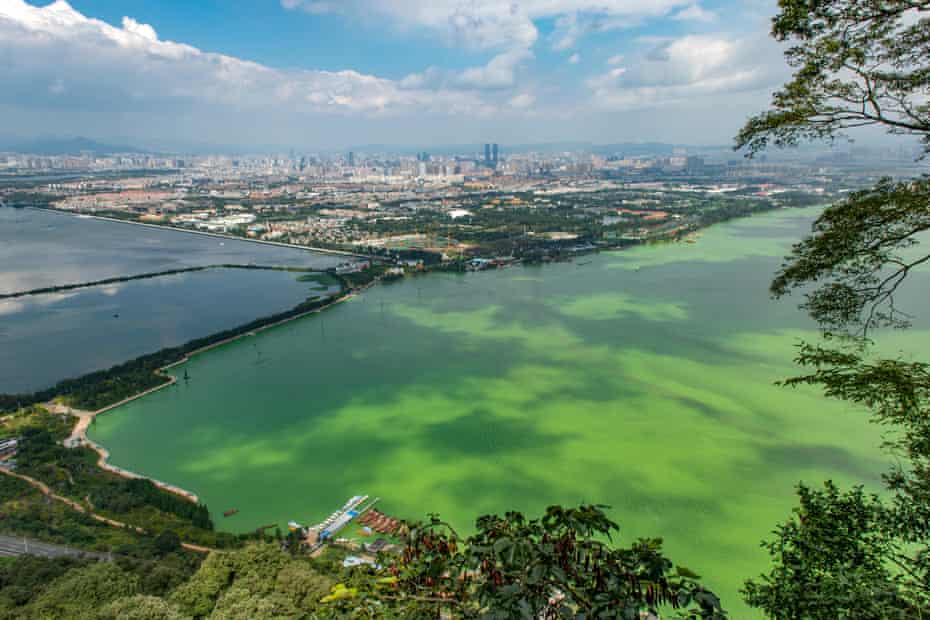Hi! Welcome back to my blog.
Today we are going to talk about various environmental pollution caused by agriculture. Firstly, let’s look at the following graph.

Environmental impacts of food and agriculture (Ritchie & Roser, 2021)
As we have talked about greenhouse gases from agriculture and food waste in the previous blog, we will focus on the 4th graph, eutrophication. Agricultural activities have contributed to 78% of global eutrophication (Ritchie & Roser, 2021). What is eutrophication? Eutrophication is characterised by excessive plant and algal growth due to increasing one or more limiting growth factors for photosynthesis, such as sunlight, carbon dioxide and nutrient fertilisers (Chislock et al., 2013). Eutrophication is a leading cause of environmental pollution in many freshwater and coastal marine ecosystems (Chislock et al., 2013). How do agricultural activities lead to eutrophication?

Eutrophication in Dianchi Lake in Yunnan Province, China (Chiu, 2018)
Animal faeces and fertilisers contain a lot of nutrients such as nitrogen and phosphorus (Chiu, 2018). When these waste and the excess fertilisers are not treated properly, the nutrients from these things are transported to nearby lake or ocean. Algae grows better with more nutrients as these nutrients are often the limiting growth factor. As a result, algae bloom occur, a phenomenon that usually accompany eutrophication.
Eutrophication is a problem because it disrupt the ecosystem in that particular water body. The algae used up all the oxygen in the water, leaving none for other aquatic life (Ohm, 2018). The algae bloom also blocks sunlight from reaching photosynthetic aquatic plants, which are often where fishes feed on (Ohm, 2018). This leads to reduction in both plants and fishes population in that particular area. Moreover, some algae may produce toxins which are harmful when ingested in large quantities (Ohm, 2018). Public may need to look for other water sources for safe water consumption.
To avoid eutrophication, treatment facilities need to be established near the agricultural areas. Norms on waste treatment need to also be held up by the public and government. We are lucky that Singapore has not experienced eutrophication due to our low agricultural activities and our top-notch water treatment system. Hopefully, other countries, especially those with lots of agricultural activities may develop better waste and water management facilities to combat the occurrence of eutrophication.
Leave a Reply